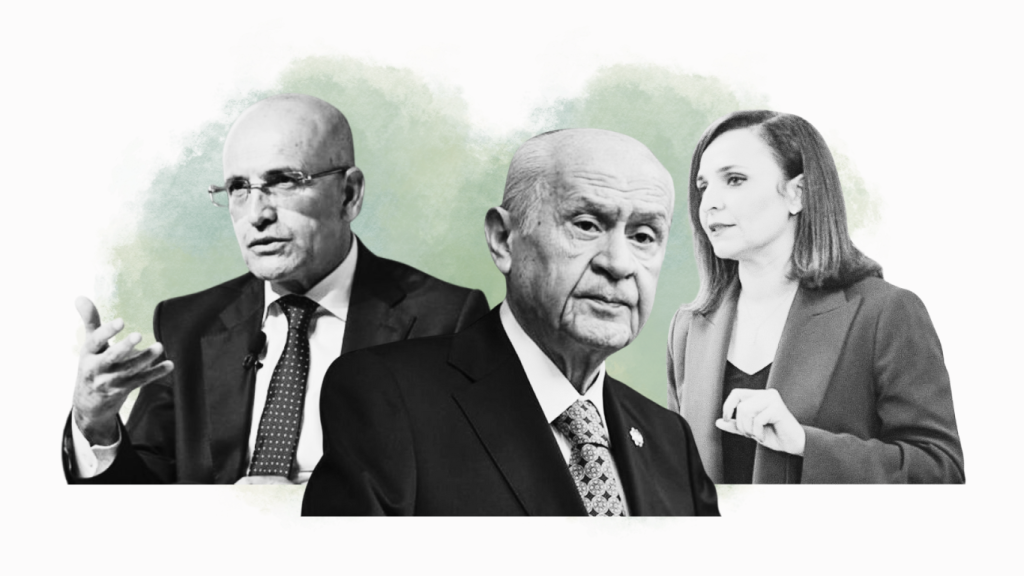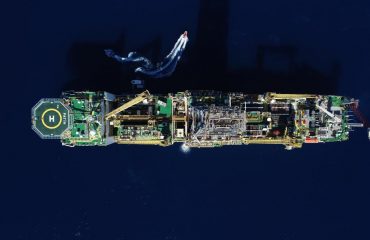

In recent weeks, Türkiye has entered a tumultous period marked by a series of interrelated internal and external developments. This combination of internal economic stress and external geopolitical pressures is reminiscent of the volatile periods in Turkish history, particularly the 1970s and 1990s.
In recent weeks, Türkiye has entered a tumultous period marked by a series of interrelated internal and external developments. These events, although seemingly unrelated at first glance, when considered together, paint a picture of a country teetering on the edge of significant economic and political instability.
The atmosphere is charged, open to provocations, and reminiscent of earlier, more tumultuous times in Turkish history.
Economic tensions and the Mehmet Şimşek factor
One of the most critical aspects of this emerging situation revolves around Mehmet Şimşek, the Minister of Treasury and Finance.
Şimşek’s economic recovery program, designed to steer Türkiye out of its current crisis, has become a flashpoint.
His policies, which have placed significant burdens on low-income workers, the unemployed, and pensioners, have largely been met with silence from the wealthier segments of society.
However, as the impact of these policies begins to encroach on their interests, these affluent groups have started to push back vocally.
A small fraction of the businesses and elites, eager to stay in the government’s good graces, initially showed support to the policies, but when the focus shifted to their own tax liabilities, murmurs of dissent grew louder.
Certain powerful groups, particularly in construction, mining, and energy sectors, along with a few exporters and tourism operators, have resisted Şimşek’s efforts, spreading rumors about his imminent resignation.
Rumors about Şimşek’s resignation, sparked by claims of disagreements over tax amnesty policies for the wealthy, were promptly denied by government officials.
The Communication Directorate’s Disinformation Center and Vice President Cevdet Yılmaz both dismissed these allegations as baseless and aimed at creating uncertainty in the markets.
These groups benefit from the depreciation of the Turkish lira and see Şimşek’s policies as a threat to their profits, thus undermining his initiatives through deliberate misinformation.
Political turmoil and the Can Atalay case
Parallel to these economic challenges, Türkiye’s political landscape has been equally turbulent.
The current legal position of Can Atalay, an imprisoned lawyer who was elected as a member of parliament from the Workers’ Party of Turkey (TİP), has sparked intense debate within the Turkish Grand National Assembly (TBMM).
The parliamentary session for Atalay’s parliamentary membership lead to physical altercations, most notably a brawl that erupted when AKP MP Alpay Özalan confronted TİP MP Ahmet Şık.
MHP leader Devlet Bahçeli has used the Atalay situation to his advantage, furthering his agenda against the Republican People’s Party (CHP).
Although Bahçeli declared the Atalay issue “closed,” he continued to escalate his rhetoric against the CHP, particularly through attacks on the Kurdish-issue focused DEM Party, in an effort to exert pressure on the CHP without direct involvement from the AKP.
He recently slammed DEM Party, demanding to cut the salaries of DEM lawmakers and called for the closure of the Constitutional Court. His statements were met with harsh answer from DEM Party, which reminded
CHP internal debates
Within the CHP itself, internal debates are becoming more pronounced as the party prepares for a key congress on September 8. The party is currently divided into three main factions: those loyal to the current leader Özgür Özel, supporters of Istanbul Mayor Ekrem İmamoğlu, and the former leader Kemal Kılıçdaroğlu’s camp.
The upcoming congress is expected to be a battleground where these factions will vie for control, potentially leading to significant shifts in the party’s direction.
Notably, a recent meeting between İmamoğlu and Kılıçdaroğlu suggests a possible rapprochement focused on setting aside past disputes to concentrate on opposing President Erdoğan.
Regional instability and the threat of escalation
As Türkiye grapples with these internal crises, the broader regional environment is also growing increasingly unstable. The ongoing war between Russia and Ukraine in the Black Sea region has escalated, with direct implications for Türkiye’s security and economic interests.
Meanwhile, in Syria, the war is intensifying, drawing in not only regional powers like Iran and Israel but also global superpowers like the United States and Russia. The tension in the Caucasus and the Eastern Mediterranean adds to the complexity, creating a dangerous geopolitical mix that could easily spill over into Türkiye.
This combination of internal economic stress and external geopolitical pressures is reminiscent of the volatile periods in Turkish history, particularly the 1970s and 1990s.
During those decades, Türkiye was marked by economic crises, political instability, and regional conflicts, which led to significant social unrest and political upheaval. The current environment bears worrying similarities, suggesting that Türkiye could once again be heading toward a period of deep uncertainty.
Middle East at boiling point: Türkiye, the U.S. and Chekhov’s gun


